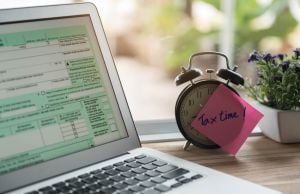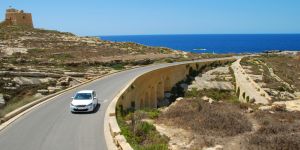Provisional tax payments
Subscribe to the topic
Post new topic
Malta Tax document states:
Tax Filing and tax payment Individuals are taxed on a preceding year basis. Individuals must make 3 provisional tax payments that must be effected before 30 April, 31 August and 21 December, respectively, of each basis year (except for income on which tax was withheld at source, e.g. employment income). The balance must be paid by 30 June of the year of assessment.
So, just to clarify, when we arrive in July, do I have to start making payments from the August after we arrive?
Otherwise, I think I've 'cracked it' by using our UK tax allowance and our joint Malta tax allowance by splitting our incomes between UK & Malta. We would only use what is paid into our Malta Bank account in Malta and stay below the 25% threshold in Malta.
That is, unless someone knows different?
You pay for last year, so if you were in the UK last year you pay
your tax to the UK. Next year you should pay in Malta (well some and some depending on date of move), well thats what we were told when we moved from France.
Terry
Redmik wrote-
"Otherwise, I think I've 'cracked it' by using our UK tax allowance and our joint Malta tax allowance by splitting our incomes between UK & Malta. We would only use what is paid into our Malta Bank account in Malta and stay below the 25% threshold in Malta."
Does this mean that one of you is tax resident in Malta and one in the UK?
Terry
tearnet wrote:Redmik wrote-
"Otherwise, I think I've 'cracked it' by using our UK tax allowance and our joint Malta tax allowance by splitting our incomes between UK & Malta. We would only use what is paid into our Malta Bank account in Malta and stay below the 25% threshold in Malta."
Does this mean that one of you is tax resident in Malta and one in the UK?
Terry
Both Malta tax payer and me non resident UK tax payer.
Anyway for the sake of a few Euros if we go over threshold then so be it.
It's only fair if we use the facilities and services.
georgeingozo wrote:you should check up on split year tax treatment for the year you move
That's probably sound advice but I've not heard of that.
Oh no, head hurting again!
its about timing your departure for tax purposes.
I also recommend you read the new rules on defining whether you are tax resident in the UK (ie liable to taxation on worldwide income) - you will be very restricted in the first 3 years on the number of days you can visit the UK
New UK rules on determining residency
http://britishexpat.com/expatforum/malt … hp?t=11718
"UK HMRC has published new rules on helping people determine if they are UK resident or not. They reduce a lot of the grey areas. It also includes guidance on split year treatment"
redmik wrote:Thanks GnG
As always you've got the 'gen'.
I pass the automatic test, 101 days only.
in that case you didn't follow it correctly - 101 days makes you neither automatically tax resident nor non tax resident
georgeingozo wrote:only 101 days in the UK does not make you automatically non tax resident, far from it
My understanding is those rules you're describing only apply to the 2nd part of the split year, and future full years. In other words, if you left the UK on the 1st February 2013, you'll be treated as UK tax resident from the 6th April 2012 to 1st February 2013, and Malta resident from 2nd February 2013 to 31st December 2013 (as Malta uses the calendar year).
To avoid being treated as UK resident between 2nd February 2013 and 5th April 2013 you need to meet the rules you're describing - which strictly speaking for 2012/2013 tax year are less than 90 days on average over 4 years - but 2013/14 tax year going forward are the new rules which are a lot clearer. Same principle for split year though (if someone leaves the UK on the 1st December 2013, the rules apply for the period 2nd Dec 2013 to 5th April 2014).
Remember split year is not a right, its a concession from HMRC which is mostly given. However if you left on the 2nd April, paid yourself £100 million on the 3rd April, HMRC are unlikely to accept your claim for split tax year treatment ;-)
Determining your tax residence isn't just about how much tax you pay, but also what you have to declare. Bear in mind its easy to end up tax resident in more than one country at a time.
georgeingozo wrote:Determining your tax residence isn't just about how much tax you pay, but also what you have to declare. Bear in mind its easy to end up tax resident in more than one country at a time.
This, and redmik also remember that split year can be a great thing - allows you to offset the FULL UK personal allowance against income before you left the UK, and the full Malta personal allowance from when you arrived in Malta to the end of that calendar year.
It gets messy if the UK and Malta consider you tax resident at the same time (as quoted above). Then you need to consider DTT (double tax treaties). Cleaner to avoid that if possible, but that depends on how many days you returned to the UK after you made your clean break 
Great advice Steve
this (and the 'other' tax thread you commented on) has been filed in my favourites for future reference.
Cheers
Mike
My real problem is that our incomes are derived from Government & MOD Pensions and letting our property and as I understand things all those incomes must be taxed in the UK. I would then declare them and ask for DTT consideration.
I will admit that this whole tax issue confuses me but I am trying to understand and thus avoid paying about £300 for professional advice, especially as the accountants want me to supply all the information regarding Malta's tax laws! What would I be paying them for? So, I try, with others advice to try to sort it out myself but every time I think I have it 'sussed' someone brings up another issue to consider. I think I need professional help but probably best wait until I'm back on Gozo and hope for rebates.
redmik wrote:My real problem is that our incomes are derived from Government & MOD Pensions and letting our property and as I understand things all those incomes must be taxed in the UK. I would then declare them and ask for DTT consideration.
I will admit that this whole tax issue confuses me but I am trying to understand and thus avoid paying about £300 for professional advice, especially as the accountants want me to supply all the information regarding Malta's tax laws! What would I be paying them for? So, I try, with others advice to try to sort it out myself but every time I think I have it 'sussed' someone brings up another issue to consider. I think I need professional help but probably best wait until I'm back on Gozo and hope for rebates.
All I can add is avoid over complicationg your own situation, remember the old KISS rule.
There are ways that we could avoid paying a few pounds /Euros but we decided the the DTT was the simplest route for us.
Ducking and diving, albeit legal is always stressful better to retire and enjoy life.
Just my opinion!
Terry
Articles to help you in your expat project in Malta
 The tax system in Malta
The tax system in MaltaWhether you have decided to work or retire in Malta, taxation will probably be one of your main ...
 Malta Financial Services Authority New Rules
Malta Financial Services Authority New RulesScheme to attract highly qualified persons
 Personal Taxation in Malta (Part 1)
Personal Taxation in Malta (Part 1)Malta offers attractive residence schemes with associated tax advantages including no taxation on worldwide ...
 Property Purchase in Malta
Property Purchase in MaltaAcquisition of property in Malta mainly involves the entering into a preliminary (promise of sale) agreement, ...
 The Malta Retirement Programme
The Malta Retirement ProgrammeInformation Date : 3rd October 2012
 Taxation for UK residents on Malta
Taxation for UK residents on MaltaI am NOT a Financial Advisor, I am just another expat. If in doubt seek professional advice.
 How to drive in Malta
How to drive in MaltaMalta is a relatively small island measuring only 27km long and 14,5km wide, so it seems on paper to be very ...
 Accidents and emergencies in Malta
Accidents and emergencies in MaltaA stay abroad is usually associated with great memories. However, it could happen that an accident or emergency ...
Find more topics on the Malta forum





